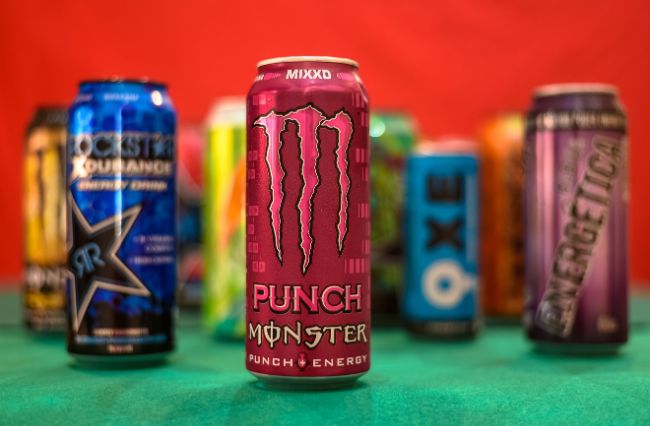Brand like Monster, Red Bull, and Rock Star all are part of a booming energy drink market valued at $129b which is expected to grow a further 8.3 percent by 2030. Social media influencers have already entered this market, too, with celebrities like Logan Paul and KSI’s “Prime” causing stampedes across the world and selling out in their thousands.
It now looks like the sport industry is the next target for these energy drink companies. These marketing giants are now using the biggest leagues and athletes, like AFL star Christian Petracca and Red Bull, to target a new market of consumer, while selling products that not only give energy but claim to enhance mental focus and physical performance.
So should athletes be able to promote these drinks, and what are the health consequences for consumers who regularly indulge in these products?
Monster Energy say their Ultra Gold drink “will help you stay focused and alert and ready for whatever life throws at you”. Red Bull’s new slogan says the drink “vitalizes body and mind”, while Celsius energy drinks “provides essential energy and is clinically proven to accelerate metabolism and burn body fat when exercising”. All this sounds incredible for a drink that costs roughly $3.50.
Stephen Keenan, Professor of Dietetics from Victoria University, led an investigation into the nutritional components of these energy drinks, and their impact on our overall health.
“There may be some benefits to consuming energy drinks including improved memory, increased alertness and elevated mood,” Keenan told.
“However, these benefits are generally more specifically linked with caffeine rather than the overall beverage.”
There can be downsides too, like frequent high levels of sugar in each energy drink, effecting us short term and long term throughout the day.
“Energy drinks contain large amounts of sugar, about seven teaspoons of sugar in a small can and approximately 13 teaspoons of sugar in a large can. The body easily and quickly digests sugar, especially when it is in liquid form, so when it is consumed individuals may get a short-term spike in energy levels as their blood sugar levels rise,” he said.
“That sugar is then rapidly utilised in the body and blood sugar levels drop, and people may then experience a decrease in energy levels causing them to feel tired.”
One 500ml Monster Energy drink can have 57g of sugar alone, exceeding the recommended daily limit. Consuming one of these drinks every day can put individuals at risk of issues like tooth decay, weight gain and diabetes. In terms of the sugar content, the World-health Organisation recommends 50 grams of sugar per day.
Dilip Mutum, Professor of Marketing at Monash University, said marketing energy drinks with athletes has seemingly become the new norm in recent years.
“Athletes are seen as energetic, strong, and having endurance, which aligns with the messaging of energy drink brands that position themselves as being associated with an active and exciting lifestyle,” he told upstart.
Western Bulldogs AFL player, Bailey Smith, is one of the best-known examples of this in Australia. His high performance and frenetic style of footy is a perfect match with energy drink company Monster Energy. Being the most followed AFL player on Instagram – with nearly 350,000 followers – helps gain attention from both AFL fans and younger audiences on social media. Pairing with these athletes and using their own social media is a clear tactic targeting young people.
“Today the athletes are viewed as celebrities and are really powerful influencers,” Professor Mutum said.
“Research has also shown that susceptibility to social influence is higher among younger consumers and gradually decreases as consumers get older. Athletes often use social media to connect with their fans and other peers.”
Professor Mutum questioned the ethics of these marketing tactics, especially because of the drinks’ high sugar levels and the non-disclosure of athlete payments.
“Personally, I do not think it is ethical if the athletes do not disclose the incentives they receive. Many of these energy drinks contain high levels of caffeine and sugar, which can lead to adverse health effects.”
The energy drink market is using a new strategy and it’s working. It’s clear from a nutritional perspective that these drinks don’t really give what they sell – the athletes and branding is what creates the buzz and sells the stock.
High profile athletes are worshipped all over the world but the ethics of partnering up with drinks that don’t give an athletic or physical advantage is questionable, according to experts like Mutum. There is still much to play out for this partnership in the future, and only time will show us the consequences for consumers, athletes and energy drink companies.
Article: Aidan Ginn is a third-year sports journalism student. You can follow him on Twitter @Aidan7557
Photo: Monster Punch can photo by Jorge Franganillo is available HERE and used under a Creative Commons license. This photo has not been modified.






